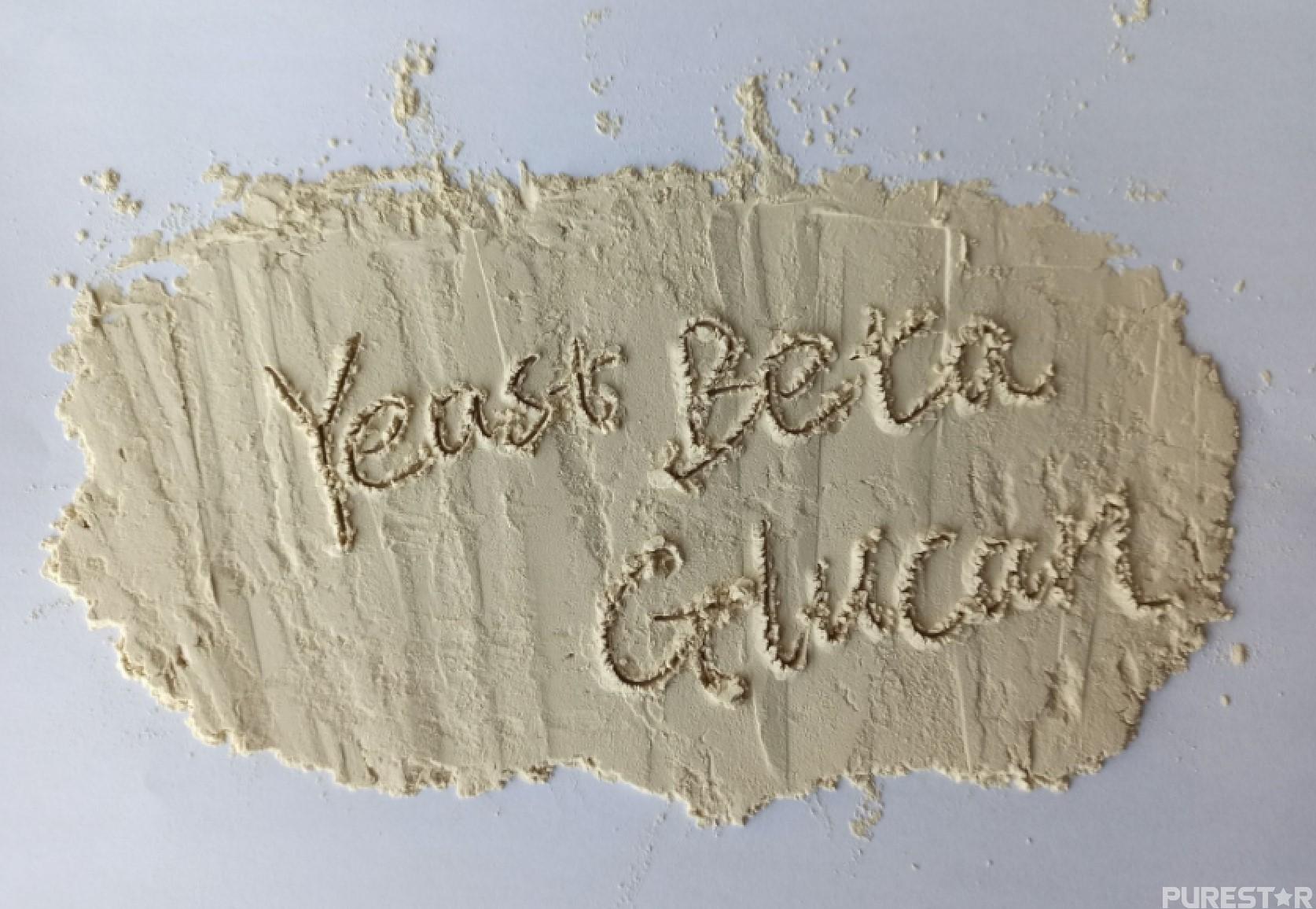With the improvement of people’s living standards and health awareness, human demands for food are no longer limited to being full or tasty — there is a growing desire for foods that promote physical health and wellness. In the future, people’s recognition of functional foods will continue to rise, and the functional food market holds enormous development potential and limitless business opportunities. For food manufacturers, in the context of a slowing global economy, producing functional foods that meet consumer demand is undoubtedly an excellent choice.
Yeast beta glucan is a functional polysaccharide derived from the cell wall of yeast. It consists mainly of β-1,3-D-glucan as the backbone and β-1,6-D-glucan as the side chains, with a molecular weight of about 2.4 million Daltons, composed of over 10,000 glucose units linked together. Within the yeast cell wall, yeast β-glucan forms a dense network structure that plays a key role in maintaining cell wall integrity and shape. Yeast β-glucan is a light-yellow powder capable of absorbing water and swelling to 6–10 times its original volume, and it serves as a thickening and moisturizing agent in food applications.
Yeast beta glucan is an excellent biological response modifier (BRM). Numerous animal and clinical studies have demonstrated that yeast β-glucan can enhance immunity, exhibit anti-tumor, anti-inflammatory, and anti-radiation effects, lower blood lipids, and promote wound healing. After oral intake, yeast β-glucan enters the bloodstream via the intestinal Peyer’s patches and lymphatic system. Human macrophages—a type of nonspecific immune cell that rapidly removes foreign antigens—possess specific β-glucan receptors on their surface. Upon recognizing yeast β-glucan, these macrophages are rapidly activated, leading to enhanced immune responses and anti-tumor, anti-radiation, and anti-inflammatory effects.

Yeast β-glucan can be used as a food ingredient in dairy products, meat products, baked goods, beverages, candies, and other common foods. It can also serve as a raw material for developing functional health foods. In ordinary foods, its strong water-holding capacity provides thickening, moisturizing, and texture-improving effects. Because of its anti-radiation and wound-healing properties, yeast β-glucan is also widely used in cosmetics such as facial masks, body washes, and hand creams, where it contributes to whitening, rapid skin cell repair, and moisturizing.
Yeast beta glucan can be developed into capsules and oral liquids as health supplements. A daily intake of 200 mg per person can rapidly enhance immunity, provide anti-radiation effects, and help lower blood lipids.
In nature, other organisms also contain small amounts of glucans, such as oats. However, these glucans are water-soluble and have linkage structures that differ greatly from those of yeast beta glucan. Their β-1,6-D-glucan side chains are longer, which significantly reduces their ability to activate macrophages, making their physiological activity much weaker than that of yeast beta glucan.
Yeast beta glucan is produced by fermenting high-glucan-content yeast using a specialized fermentation process. Through advanced biotechnology, impurities such as proteins, fats, and nucleic acids are removed, yielding a refined product with a β-glucan content as high as 85%.
Yeast beta glucan is suitable for middle-aged and elderly individuals with weakened immunity, patients with abnormal blood lipid levels, people prone to frequent colds, as well as tumor patients and those undergoing radiotherapy or chemotherapy.
Contact:
Phone: 0086-13754204265
Tel: 0086-572-2157374
Email: sales@bulkbetaglucan.com
Add: No.235,Huanchengdong Road,Huzhou,Zhejiang,China